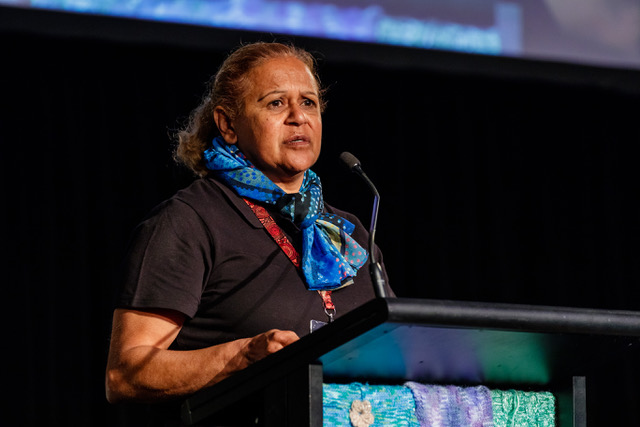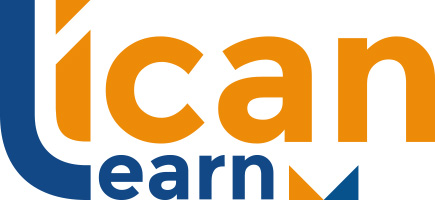 This month ICAN Learn E-News caught up with Lynda Edwards, a Wangkumara woman with connections to the Barkindji people of Far West NSW and a star already burning bright. After working for 13 years as a financial counsellor, capability worker and manager of the Manage your Income Manage Your Life Indigenous Financial Literacy Program with CentaCare Wilcannia-Forbes, Lynda took a position with Financial Counselling Australia (FCA) to co-ordinate the national financial capability program.
This month ICAN Learn E-News caught up with Lynda Edwards, a Wangkumara woman with connections to the Barkindji people of Far West NSW and a star already burning bright. After working for 13 years as a financial counsellor, capability worker and manager of the Manage your Income Manage Your Life Indigenous Financial Literacy Program with CentaCare Wilcannia-Forbes, Lynda took a position with Financial Counselling Australia (FCA) to co-ordinate the national financial capability program.
Explaining her role with FCA, Lynda said, “I basically work with services across Australia that employ financial capability workers, ensuring our people are supported through information pathways which includes a community of practice (FCW google email network). My other role is to coordinate and facilitate the annual Aboriginal and Torres Strait Islander (ATSI) Forum and EDR Yarning Circle at the national FCA conference. More recently, I have also been involved in lobbying and advocacy to government, industry, and regulators.”
“We’ve done a lot of advocacy and lobbying for better consumer protections against payday lending and consumer lease companies”, said Ms Edwards. “Until protections are in place, we’ll continue to try and get politicians to understand the damage these financial products are doing to Aboriginal and Torres Strait Islander people and communities on the ground. Hopefully we’ll see some traction with that in the near future.”
When questioned on whether the Mentorship Program has assisted Lynda in her current role, she said, “I’ve been a financial counsellor before, but this diploma has given me so much more than that. There’s so many issues, so you’ve got to learn about different rules, legislation and laws to be able to participate in the conversation. It has been a really big learning curve for me.”
“Our Aboriginal and Torres Strait Islander financial literacy Google network also benefits, as I’m also better able to respond to queries about cases,” said Ms. Edwards. “I think that’s one of the main reasons why I wanted to do the diploma, to really understand the work our financial counsellors do on the ground. There’s just so many different issues out there for Aboriginal and Torres Strait Islander people, because finance plays such a huge role in our lives.”
Speaking on learning with her Aboriginal and Torres Strait Islander peers from all over Australia, Lynda said, “It provides a great opportunity to share what we’re seeing on the ground and better understand the challenges our Aboriginal and Torres Strait Islander financial counsellors have working in their own communities where financial literacy is relatively a really new thing. I guess it grounds my knowledge on what our financial counsellors and capability workers face on a daily basis.”
Talking more specifically about the delivery of the Diploma of Financial Counselling, Lynda said, “The fact that it’s taught it’s face to face and has a culturally competent course instructor has really assisted me. Having other Aboriginal and Torres Strait Islander people and students in the room is also really beneficial, it’s all about being able to have a discussion in a safe environment and not being worried about being judged.”
Reflecting on her time in the sector, Lynda stated, “You know the professionalism of our Aboriginal and Torres Strait Islander Financial Councellors has grown so much in the last 10 years. We now have our own mob advocating at a national level to industry and government. We’re also seeing the stereotypical black/white community service roles reversed with many of my Aboriginal and Torres Strait Islander colleagues working in organisations that service mainstream Australia. Unlike some ATSI classified positions, Aboriginal and Torres Strait Islander people in this profession are financial counsellors first, ethnicity second.”
“For many of us financial counselling is a 24/7 profession, the work day never ends, as there is always a family or community member in financial hardship waiting for us at home,” stated Ms Edwards.


